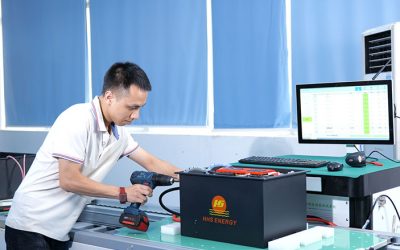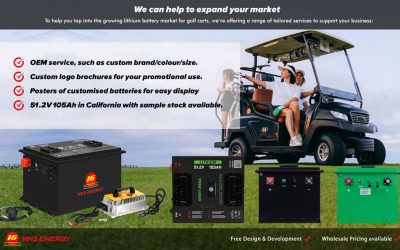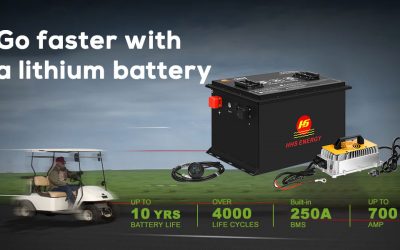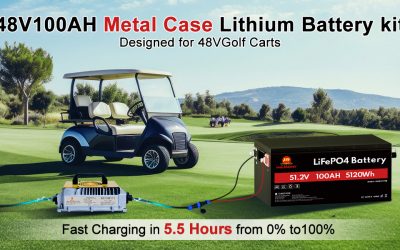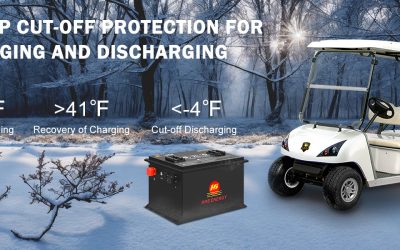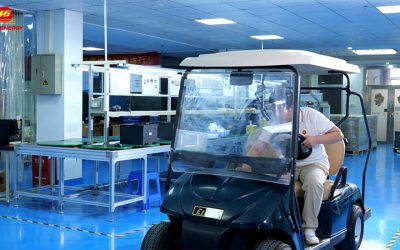What type of battery is best for a golf cart?
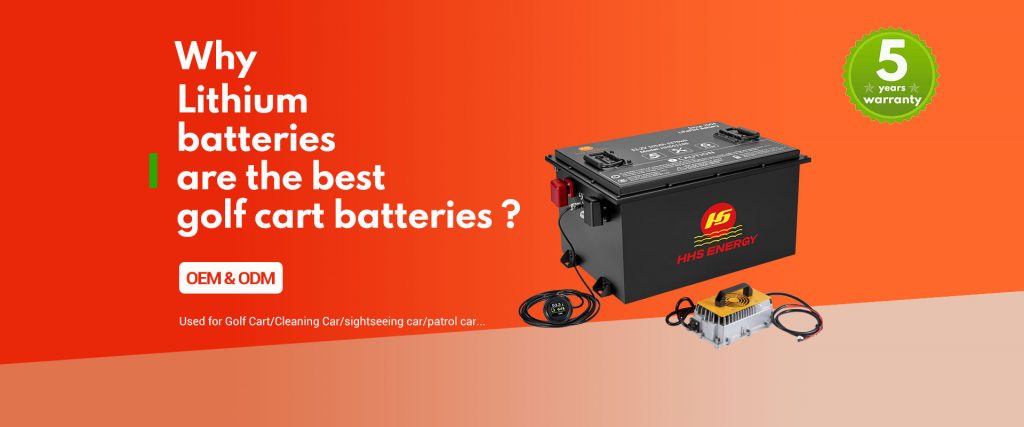
Lithium batteries are the best golf cart batteries
Lithium batteries are the best golf cart batteries because they don't require maintenance. They also have a longer lifespan than other types of batteries.
When choosing a battery for a golf cart, understanding the pros and cons of different types can help you make the most suitable decision. Here’s a detailed overview of the common types of golf cart batteries to assist you in selecting the one that best fits your needs.
1. Lead-Acid Batteries
Lead-acid batteries are the traditional and most widely used type in golf carts. They come in several sub-types, each with its own characteristics.
1.1 Flooded Lead-Acid (FLA)
Flooded lead-acid batteries are the most basic type. They have several advantages:
- Lower Cost: Generally, FLA batteries are more affordable compared to other types.
- Mature Technology: This battery type has been in use for a long time, with a well-established technology and readily available replacements.
However, they also have some drawbacks:
- Maintenance Required: These batteries need regular maintenance, including checking and adding distilled water, which adds to the complexity of upkeep.
- Lower Charging Efficiency: They usually have lower charging and discharging efficiency, often requiring more frequent recharging.
- Shorter Lifespan: Compared to newer battery types, FLA batteries generally have a shorter lifespan.
1.2 Absorbent Glass Mat (AGM)
AGM batteries are an improved type of lead-acid battery, featuring:
- Maintenance-Free: AGM batteries are sealed and do not require adding water, reducing maintenance work.
- Higher Safety: The sealed design minimizes the risk of leakage, making them safer.
- Better Performance: AGM batteries offer higher discharge rates and better charging efficiency.
However, they also have some disadvantages:
- Higher Cost: AGM batteries are more expensive than traditional flooded lead-acid batteries.
- Temperature Sensitivity: While they perform better than FLA batteries, their performance might still be affected by extreme temperatures.
1.3 Gel Batteries
Gel batteries are another type of sealed lead-acid battery with the following features:
- Good Durability: Gel batteries perform well in various environmental conditions, including high and low temperatures.
- Maintenance-Free: Like AGM batteries, gel batteries do not require regular maintenance.
- Longer Lifespan: Compared to traditional FLA batteries, gel batteries generally have a longer lifespan.
Their drawbacks include:
- High Cost: Gel batteries are usually more expensive than AGM batteries.
- Special Charging Requirements: They need specific chargers to avoid damage, which can be an added expense.
2. Lithium-Ion Batteries
Lithium-ion batteries are becoming increasingly popular in golf carts due to their numerous advantages:
2.1 Lithium Iron Phosphate (LiFePO4)
Lithium iron phosphate batteries are a type of lithium-ion battery with the following benefits:
- Long Lifespan: LiFePO4 batteries have a significantly longer lifespan, often exceeding 2000 charge cycles.
- High Energy Density: These batteries are lighter and have a higher energy density compared to lead-acid batteries, offering advantages in size and weight.
- Fast Charging: LiFePO4 batteries charge more quickly, allowing the golf cart to be ready for use in less time.
- Maintenance-Free: Unlike lead-acid batteries, lithium-ion batteries do not require maintenance.
However, they also come with some downsides:
- Higher Initial Cost: The upfront cost of lithium-ion batteries is higher than that of lead-acid batteries, although they may be more cost-effective in the long run due to their durability.
- Specialized Charging Equipment: They require specialized chargers to ensure safety and optimal performance.
Recommendations
Choosing the right battery type largely depends on several factors:
- Budget: If you have a limited budget, flooded lead-acid batteries might be the most economical choice. If you can afford a higher initial investment, lithium-ion batteries offer better performance and longevity.
- Maintenance Needs: If you prefer a battery with minimal maintenance, AGM, gel, and lithium-ion batteries are good options.
- Usage Conditions: For golf carts used in extreme conditions, lithium-ion and gel batteries might be more suitable due to their better performance under such conditions.
In summary, selecting the most appropriate battery type for your golf cart will enhance your overall experience and performance. I hope this information helps you make a more informed decision!
